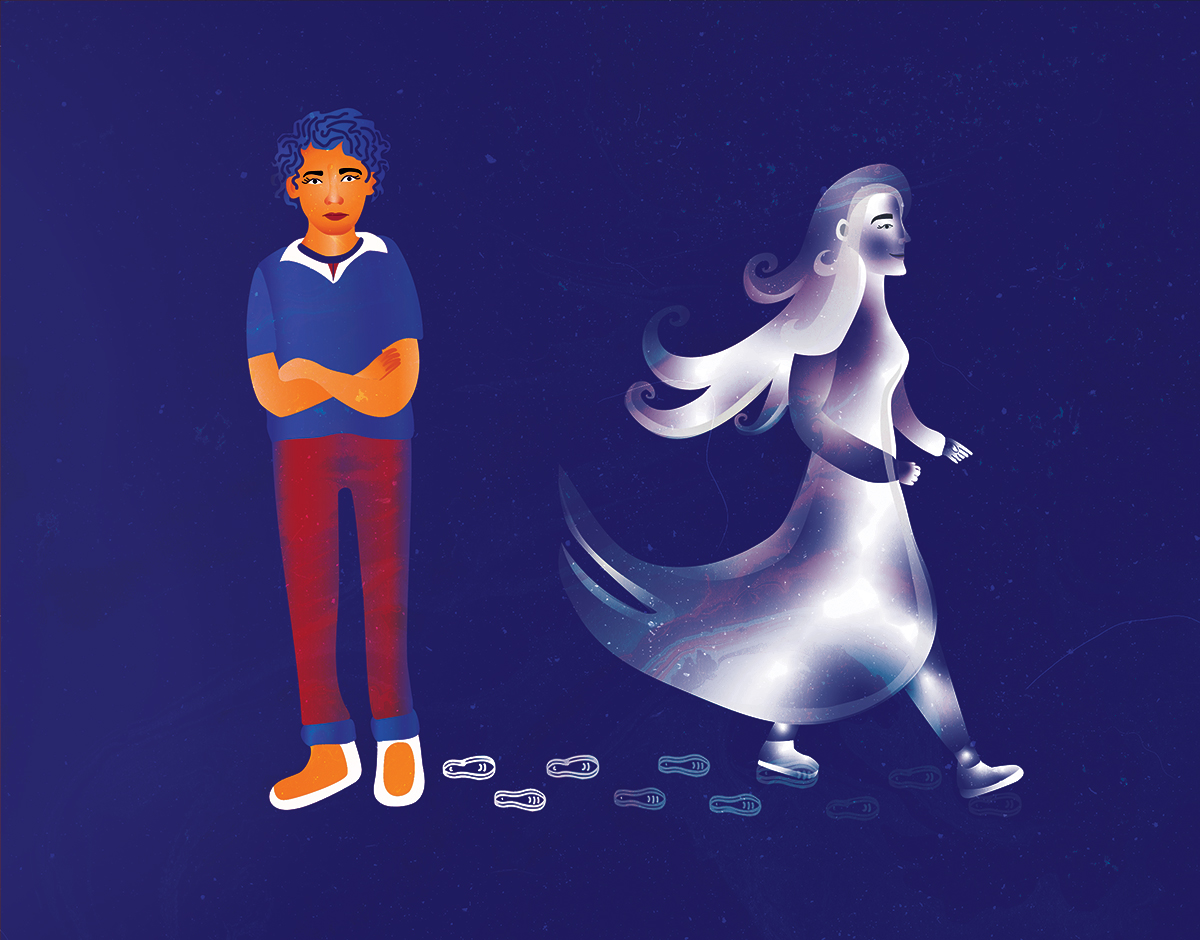Before you cancel me, hear me out – ghosting is not that deep
I hear and understand you – ghosting sucks, and it hurts. But I’m here to tell you not to take it personally.
Full disclosure, my intentions are good. I’m not trying to gaslight you or invalidate your feelings. As someone who used to take ghosting really badly, I assure you that it’s not a big deal.
As the term implies, ghosting means to act like a ghost and vanish from someone’s life, abruptly cutting off all communication with a person you’re seeing or dating with zero warning or notice. Oftentimes, when people ghost, they leave the other person on either “delivered” or “seen” on all social media.
On an Instagram poll I created last week asking my followers whether they think ghosting is ok, 54 people voted yes, and 18 people responded it wasn’t.
“People don’t owe you anything. Sometimes getting ghosted is better than having your questions answered,” said 22-year-old Oliver Ocampo.
“I think being okay and used to [being] ghosted builds character and allows you to keep in mind that people are meant to come and go,” Ocampo added.
Some may argue that leaving the person high and dry with no explanation or warning is a lack of maturity. A recurring answer from my followers is the principle of mutual respect.
“It’s not a question of owing people. It’s a question of human decency. Imagine if everyone lived their lives on the basis of ‘I don’t owe them anything.’ The world would be a toxic place,” said Dean Dadidis, a third-year biology major at Concordia University.
I’ve had my fair share of ghosting stories. I’ve been ghosted, and I’ve also ghosted.
I do believe, though, it depends on the context and the person in question. If it’s someone you don’t really know who you’ve gone on a few dates with or occasionally talked to here and there, then I think it’s fine!
From my experience, the people I’ve ghosted were guys I didn’t particularly know well or care enough to reject them formally.
The way I see it, ghosting is still a rejection. I guess it’s a more “subtle” way of letting someone know you’re uninterested.
Personally, I don’t mind either way of rejection, whether it’s the formal message or being left on “read.” Both hurt the same, and I moved on. However, I do understand some people might need closure.
“It depends on the situation, but it’s always best to say something to close the chapter,” said Laura Matheuszik, a student at Dawson College.
I guess what I’m trying to say is that if you’re in a situation where you’re being ghosted, take it with a grain of salt.
I agree and stand with Ocampo — honestly, I don’t think it’s that terrible.
Sometimes people have their own issues and can’t be bothered to let the other person know. Others are just not good at confrontation. That’s ok. That’s their problem, not yours. I’ve learned not to let it affect my self esteem or question my self-worth.
Whether or not you agree with my opinion, I hope you understand where us “ghosters” are coming from. Hence, do not let the act of being ghosted affect the way you view yourself!
Now, the question of the hour – should we normalize ghosting?
Graphic by Madeline Schmidt
